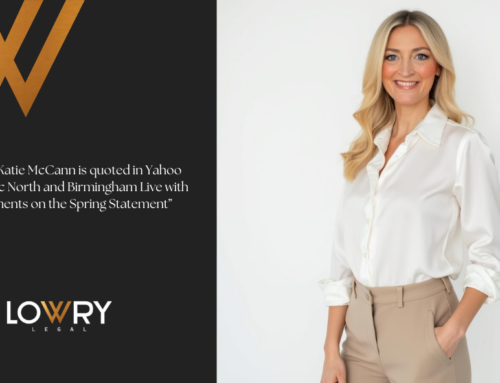It’s widely accepted that complete financial transparency is often the least risky, most stress-free approach to a quick financial settlement during divorce. In the majority of cases, both parties tend to accept that committing to an open dialogue about finances is an essential step towards reaching a mutually acceptable settlement. That said, with temperatures running high and, in some cases, the fate of significant wealth hanging in the balance, it can be extremely tempting for one or more parties to consider hiding assets during divorce in the UK (specifically England and Wales).
However, if you’re an English or Welsh resident going through divorce and are seriously contemplating concealing assets, there are potentially severe consequences to consider. Full and frank disclosure throughout the proceedings is a legal requirement. Let’s take a look at the common attempts at justification for hiding assets during divorce and the potential penalties involved.
Can You Hide Assets in a Divorce?
An important principle in reaching a financial agreement during divorce is that both parties offer a full disclosure of their assets. Financial transparency gives both parties a complete picture of what is at stake — making an amicable resolution more realistic. Hiding assets during divorce increases the chances of a breakdown in negotiations and makes a hostile legal process more likely.
During the legal process if matters are dealt with at court, assets are detailed in a document, known as Form E. This form takes a holistic view of all aspects of shared and individual finances, including:
- Children: Information about dependents is included in the form, with emphasis on any financial contribution towards their education.
- Properties: Ownership of both the matrimonial home and other properties must be included
- Income: All earnings must be documented and substantiated with bank statements from at least the past 12 months
- Businesses: An accurate valuation of any privately owned businesses will need to be disclosed if available. Any debts and liabilities must be included in the overall valuation. Disclosure of the company accounts is also necessary.
It’s important to note that, as an official legal declaration, any attempt at concealing assets in Form E could be considered as not telling the truth to the court. Therefore, along with threatening to derail potentially sensitive discussions, hiding assets during divorce might also lead to some heavy sanctions. That said, despite the serious risks involved some parties do persist in attempting to conceal assets.
To read more about divorce and financial disclosure, you can find our blog here.
Common Attempted Ways of Hiding Assets During Divorce
Concealing assets is generally more common when one party is considered to be the ‘main breadwinner’. In these situations, the higher earner often has broader access to both parties’ finances, while the other partner is less sure what assets are at play. In this scenario, the higher earning partner may choose to hide assets before the eventual divorce.
The most common approaches involved with attempts at hiding assets in divorce include:
- Transferring money or shares: This could entail transferring significant sums of money to one or more friends and/or relatives
- Setting up trusts: If set up close to the point of divorce, trusts might draw suspicion. However, long-standing trusts are difficult to link with concealing assets
- Transferring money offshore: International assets are much more difficult to trace and value than domestic assets
- ‘Secret’ bank and savings accounts: This is especially prevalent when one party had increased financial control during the relationship
- Cryptocurrency: Concealing money in cryptocurrency has become much more common in recent years. The anonymity and lack of a paper trail makes them a viable option for some spouses
- High value purchases: Buying expensive items that retain their value, such as jewellery, with the intention of recouping the money post-settlement is a common way of hiding assets in divorce in the UK.
- Manipulating business assets: This might include falsifying business liabilities, devaluing/hiding assets, and more
- Deferring bonuses: Annual bonuses can comprise a significant portion of wages. Some parties may defer bonuses, with the intention of receiving the full, deferred payment post-divorce
Evidently, there are a broad range of potential approaches available to a divorcing spouse who is intent upon concealing assets. Further to this, advances in technology mean that the form of hiding assets is constantly evolving. If you’re currently going through divorce or separation, it’s important to obtain experienced legal advice to clarify your situation and devise a sound legal strategy that works in your best interests. This is especially relevant if you feel that your spouse may be attempting to frustrate the outcome of any financial settlement by trying to conceal assets.
There is No ‘Best Way’ to Hide Money Legally from a Spouse
This is something we are often asked by clients, and our advice is always the same: don’t do it. Hiding assets during a divorce is never something we would advise, as it can make what is often already a stressful situation even more complicated.
No matter how acrimonious your relationship with your spouse has become, denying them their fair share is not the answer. Alternatively, you may be concerned the other party will attempt to take more from than they are entitled and wish to hide assets to prevent this from happening. If this is the case, you should instead contact a specialist solicitor who can help you understand exactly what your spouse is entitled to and will fight to ensure a fair outcome.
How are Attempts at Concealing Assets Dealt With?
Despite the often complex and innovative approaches towards hiding assets during divorce, this form of deception is often discovered. Specialist divorce and family lawyers have experience in a vast majority of scenarios and will use their expertise and scope to drill into finances and uncover the concealing of assets. Using forensic accountants, any disparities between stated income and spending habits usually leads to the discovery of any hidden items. Additionally, the use of forensic accountants can be very useful where deception is attempted via a corporate vehicle such as the family business.
A suspecting former partner could look to uncover concealed assets in the following ways:
- Request third-party disclosure: A spouse could apply to the courts for their solicitor to gain access to a third party’s bank and tax records
- Freezing Order: Also known as a freezing injunction, this mechanism stops a party from disposing or dissolving assets. It stops money being moved around between bank accounts or used to buy investments, shares, etc
- Avoidance of Disposition Order: This is used when there is suspicion that an asset has already been sold or moved to avoid detection. If agreed and proved, the monies or asset/s can be returned to the matrimonial pot to be included in the settlement
- Add Back: To be used when an individual has spent an ‘excessive’ amount of money to remove the value of the purchase from the settlement pot. If ordered, the money can be returned to the matrimonial pot or deemed to exist in the deceptive spouse’s side of the balance sheet, even if the money has been spent.
Ultimately, there are a wealth of options available to a suspicious spouse or former partner.
I Think My Spouse is Hiding Assets During Divorce in the UK: Should I Investigate This?
Even if you’re convinced that your spouse is hiding assets in divorce in the UK, you are strongly advised against starting your own investigation. Despite your best intentions, this path could quickly lead to you breaking privacy laws. Potential breaches of privacy include taking someone else’s physical or electronic documents, accessing their computer records, opening their mail, or breaking into their home to copy important documentation.
Hiring a private investigator to expose your spouse’s suspected misdeeds could also be viewed by the courts as being illegal. Ultimately, any information recovered by a third party using these means would still be classed as law breaking on your part. Furthermore, even if evidence of your partner’s wrongdoing was recovered this way, it wouldn’t be admissible in court, and could result in additional legal costs and/or criminal charges.
Rather than taking these risks, you should always discuss your reasons for suspecting that assets are being hidden with your solicitor
Finding Hidden Assets During Divorce
As we’ve explained, if you suspect your spouse is trying to hide assets from you, your first course of action should be to consult a solicitor. They will help you uncover the truth.
Your solicitor may also enlist the help of a third-party expert, such as a forensic accountant, for assistance. They will conduct a thorough investigation to track down any hidden assets and can appear as an expert witness in court should the need arise.
As we’ve discovered, it’s crucial that you don’t take matters into your own hands without first understanding the consequences. Even if your suspicions are well-founded, there are some simple steps you can take to get to the bottom of the situation without putting yourself at risk.
Ten Steps to Tackle Someone Hiding Assets During Divorce in the UK
- Calmly Gather Evidence: Take note of any signs or inconsistencies that suggest assets might be hidden. This could include unusual financial transactions, abrupt lifestyle changes, or inexplicable gaps in financial records. Keep track of all important documents, including bank statements, tax returns, and investment portfolios.
- Consult a Specialist Divorce Lawyer: Schedule a meeting with a divorce lawyer who specialises in complex financial disputes. They can provide legal guidance on how best to proceed and ensure your rights are protected. Discuss your suspicions and/or evidence you’ve gathered before considering taking legal action.
- Demand Full Financial Disclosure: Under UK law, separating spouses must provide full financial disclosure. Your solicitor can formally request this information from the opposite legal team. If your spouse refuses or provides incomplete information, this could be a red flag that assets are being hidden.
- Engage a Forensic Accountant: Forensic accountants excel at tracing hidden assets, detecting financial discrepancies, and uncovering other irregular transactions. Your solicitor may recommend hiring a forensic accountant to conduct a thorough investigation into your spouse’s finances.
- Consider Freezing Assets: If you believe your spouse is moving or hiding assets, your lawyer may apply for a freezing order to prevent them from transferring valuables during the divorce proceedings.
- Apply for Third-Party Disclosure If your spouse has hidden assets in third-party accounts (e.g., with friends or family), your lawyer can apply for third-party disclosure to obtain access to these records.
- Consider Court Orders: If assets have already been moved or concealed, your lawyer can request a “disposition order” to recover them. This can direct your spouse to return the hidden assets to the matrimonial pot for a fair division.
- Document Everything: Keep a detailed record of any suspicions, actions, or conversations about hidden assets. This documentation could be used as evidence in court.
- Avoid DIY Investigations: We can’t reiterate this enough. While it’s tempting to investigate hidden assets yourself, avoid taking matters into your own hands. Illegally accessing private matters could harm your case or even result in legal repercussions of your own making.
- Negotiate Through Legal Channels: With the help of your solicitor, proceed through the available options within the legal system. If hidden assets are found, the court can impose penalties, including adjusting the settlement in your favour or even holding your spouse in contempt.
By following these steps, you ensure that your own actions are legally sound and that you are doing everything possible to uncover hidden assets during your divorce proceedings.
Can a Trust Be Used to Avoid a Fair Settlement?
As is the case with any asset, trusts will need to be declared as part of a divorce settlement. Although there are numerous legitimate reasons to set one up — such as managing tax and protecting wealth for future generations — they can also be used to attempt to prevent a spouse getting their fair share in a divorce. The courts will consider the reasons for the trust being created in order to decide whether it should be classed as a financial resource that can be shared between parties.
Some spouses may choose to set up a trust as soon as the prospect of divorce becomes a genuine possibility. If the courts infer that the sole intention of a trust was to avoid a fair settlement, they will usually determine that it is a “sham”. This would result in it being disregarded and the asset being divided like any other.
What is the Penalty for Hiding Assets in Divorce in England and Wales?
Hiding assets during a divorce in the UK can significantly delay or complicate the financial settlement. If discovered, penalties can include having to pay the other party’s legal costs, contempt of court charges, and even reopening the settlement. In extreme cases, it may even result in criminal charges and further legal consequences.
As well as being ordered to settle all legal costs, the discovery of concealing assets can result in you receiving a worse financial settlement, especially if the court feels that the course of conduct in the attempt to conceal is so heinous that it should be taken into account. Additionally, if the deception is discovered down the line, the court has the power to reopen the original settlement and make drastic changes to the original financial order. In extreme cases, it could even lead to a criminal record.
The potential penalties for hiding assets during divorce in the UK include:
- Financial Consequences: You may be required to pay the legal fees of both parties involved in the proceedings.
- Worse Financial Settlement: The court could adjust the settlement in the wronged party’s favour.
- Contempt of Court: Attempting to conceal assets can result in contempt charges.
- Reopening of Settlement: If discovered later on, the court has the power to revisit and even adjust the original agreement in the other party’s favour.
- Criminal Penalties: In more extreme cases, hiding assets could lead to criminal charges and a criminal record.
- Forfeiting Rights to Concealed Assets: The court may rule that the hidden assets should be transferred from the wrongdoer to the other spouse.
If you are involved in financial proceedings and are concerned about the above consequences, it’s essential to receive comprehensive legal advice from family law specialists as soon as possible..
Hiding or attempting to hide assets in divorce proceedings is wrong and invariably will land the offender in extremely hot water. You will never be advised to do this and if you wish to conduct your affairs in this way your lawyer will be professionally embarrassed and will cease to act for you.
Can a Divorce Financial Settlement be Reopened?
Yes, it is entirely possible for a divorce financial settlement to be reopened once it has been finalised. This only occurs in rare cases where there has been a significant change in circumstances shortly after the resolution was made. An example of this is where one party is discovered to have hidden assets from the other during divorce proceedings.
If your financial settlement has recently been finalised but you now suspect your former spouse was hiding assets, you should contact a solicitor as soon as possible so they can look into this for you. Should your suspicions be correct, it may be possible to reopen the case and claim back what you missed out on.
This is not possible if you are merely dissatisfied with the amount you received in your settlement. Getting specialist legal advice at the earliest opportunity is the only way you can be truly confident you are receiving what you are owed.
Lowry Legal: Specialists in High Net Worth Divorce
Lowry Legal is a holistic law firm with comprehensive experience of representing clients with significant wealth. We understand that full financial disclosure forms the basis on which high net worth divorce is founded. Whether you’re anticipating an amicable end to your relationship or a more complex settlement, we have the experience to guide you towards a positive outcome.
Our commitment to you means that your best interests will be central to our strategy throughout the divorce process. We’ll adopt a practical and jargon-free approach from the outset to ensure that you fully understand the options at your disposal and have a clear understanding of the stages towards a suitable resolution.
To speak to one of our specialist divorce lawyers, contact us today, or email enquiries@lowrylegal.co.uk.
Request a Callback
Leave a few details below and one of our team will be in touch to discuss how we can support you with your legal needs. Please note that we cannot offer Legal aid.















